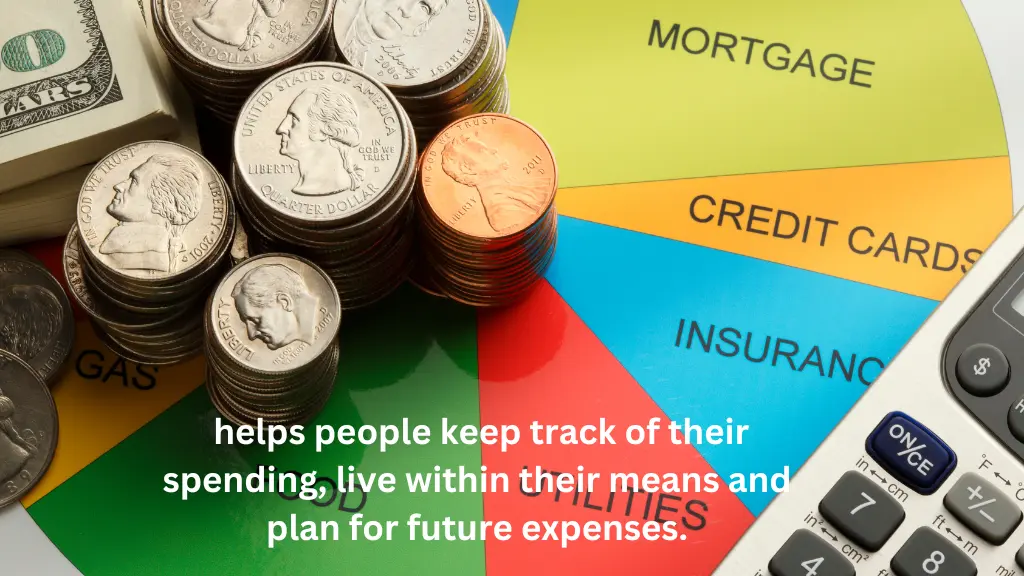Why do people use a household budget? It’s a question that many ask, and for good reason. A household budget is a powerful tool that helps individuals and families achieve financial stability and reach their long-term goals.
A household budget allows you to track your income and expenses, identify areas for potential savings, and allocate your resources effectively towards your financial objectives. It empowers you to take control of your money and make informed decisions about how to spend, save, and invest.
In this article, we’ll explore the numerous benefits of using a household budget, provide practical tips for creating and maintaining one, and address common challenges that individuals may face along the way.

Whether you’re just starting out or looking to fine-tune your existing budget, this comprehensive guide will equip you with the knowledge and strategies you need to achieve lasting financial success.
The Importance of Knowing Where Your Money Goes
Have you ever felt like you’re working hard, but somehow, your bank account doesn’t seem to reflect it? You’re not alone!
Without a budget, it’s like trying to drive a car blindfolded – you might make it to your destination, but the chances of taking a few wrong turns (or crashing) are pretty high.
A household budget acts as your financial GPS, giving you a clear view of where every dollar is coming from and where it’s going.
But why is it so important to know where my money is going?
Simply put, when you have a clear understanding of your income and expenses, you can make informed decisions about how to allocate your resources.
It’s like having a blueprint for your financial future, allowing you to prioritize your spending, cut back on unnecessary expenses, and divert those funds towards more important goals, like saving for a rainy day, paying off debt, or investing in your future.
The Power of Planning
One of the most significant benefits of a household budget is that it empowers you to take control of your financial destiny.
Without a plan, it’s easy to fall into the trap of living paycheck to paycheck, constantly feeling like you’re treading water and never getting ahead.
But with a budget, you can develop a strategic plan for achieving your financial goals, whether it’s saving for a down payment on a house, funding your retirement, or building an emergency fund.
Imagine being able to look at your budget and see exactly how much progress you’re making towards your goals each month.
It’s like having a personal cheerleader, celebrating your victories and motivating you to keep pushing forward.
And the best part? You’re the one calling the shots, deciding where your money goes and what’s most important to you.
Breaking Down the Budgeting Process
Now that we’ve covered the “why,” let’s dive into the “how.” Creating a household budget might seem daunting at first, but trust me, it’s like learning to ride a bike – a little wobbly at the start, but once you get the hang of it, it becomes second nature.
Step 1: Track Your Expenses
The foundation of any solid budget is knowing where your money is currently going. Start by gathering all your financial documents, such as bank statements, credit card bills, and receipts.
Then, categorize your expenses into groups like housing, utilities, transportation, groceries, and entertainment.
It might feel a bit overwhelming at first, but think of it as a treasure hunt – you’re uncovering all the little nuggets of information that will help you gain control over your finances.
But what if I have irregular or variable expenses?
Great question! For those pesky expenses that fluctuate from month to month, like utility bills or medical costs, the best approach is to look back over the past year and calculate an average. This way, you can account for those variations in your budget and avoid any nasty surprises down the line.
Step 2: Set Financial Goals
Now that you have a clear picture of your current spending habits, it’s time to dream big and set some financial goals.
Do you want to pay off your student loans faster? Save for a down payment on your dream home? Or maybe you’re aiming to build up a cushion for retirement.
Whatever your goals may be, write them down and attach a specific dollar amount or timeline to each one.
This will give you something concrete to work towards and help you stay motivated throughout the budgeting process.
But what if my goals seem too ambitious or unrealistic?
Don’t sell yourself short! The beauty of a household budget is that it’s flexible and can be adjusted as needed. Start with achievable goals, and as you become more comfortable with budgeting, you can always raise the bar and aim higher.
Step 3: Create Your Budget
With your expenses tracked and goals set, it’s time to bring it all together and create your household budget. This is where the magic happens!
Start by listing out your monthly income sources, such as your salary, any side hustles, or passive income streams. Then, subtract your fixed expenses (like rent or mortgage payments, car payments, and insurance premiums) from your total income.
What’s left is your discretionary income – the money you can allocate towards variable expenses like groceries, entertainment, and those financial goals you set earlier.
Here’s an example of what your budget might look like:
| Income Sources | Amount |
|---|---|
| Salary | $4,000 |
| Side Hustle | $500 |
| Total Income | $4,500 |
| Fixed Expenses | Amount |
|---|---|
| Rent | $1,200 |
| Car Payment | $300 |
| Insurance | $150 |
| Total Fixed Expenses | $1,650 |
| Discretionary Expenses | Planned Amount | Actual Amount |
|---|---|---|
| Groceries | $400 | |
| Utilities | $200 | |
| Entertainment | $150 | |
| Savings (Emergency Fund) | $500 | |
| Debt Repayment | $300 | |
| Total Discretionary Expenses | $1,550 |
In this example, your total discretionary expenses ($1,550) plus your fixed expenses ($1,650) equal $3,200, leaving you with $1,300 to allocate towards additional savings, investments, or fun money!
But what if my expenses exceed my income?
If your expenses are higher than your income, don’t panic! This is where the power of a budget really shines – it allows you to identify areas where you can cut back or find ways to increase your income.
Maybe it’s time to negotiate a raise at work, pick up a side gig, or reevaluate some of your non-essential expenses.
The Benefits of Sticking to Your Budget
Now that you’ve gone through the process of creating your household budget, it’s time to reap the rewards! Here are just a few of the amazing benefits you can expect when you stick to your budget:
Reduced Stress and Anxiety
No more lying awake at night, worrying about how you’re going to pay the bills or make ends meet. With a budget in place, you’ll have a clear understanding of your financial situation and a plan to tackle any challenges that come your way.
It’s like having a life preserver in the ocean of personal finance – you can relax and enjoy the ride, knowing that you’re prepared for whatever comes your way.
Improved Financial Discipline
Budgeting is like a workout for your financial muscles – the more you stick to it, the stronger your discipline and self-control become.
You’ll find yourself making more mindful decisions about your spending, prioritizing your goals, and developing healthy financial habits that will serve you well for years to come.
Increased Savings and Debt Repayment
With a clear understanding of where your money is going, you’ll be able to identify areas where you can cut back and divert those funds towards your savings or debt repayment goals.
Imagine the sense of accomplishment you’ll feel as you watch your savings grow or your debt balance shrink month after month.
Greater Financial Freedom
Ultimately, the true beauty of a household budget lies in the freedom it provides. Freedom from financial stress and worry.
Freedom to pursue your dreams and live the life you’ve always wanted. And freedom to make choices that align with your values and priorities, rather than being dictated by your bank account.
Conclusion
In the grand scheme of life, a household budget might seem like a small thing. But just like a tiny seed can grow into a mighty tree, the simple act of creating and sticking to a budget can blossom into a lifetime of





